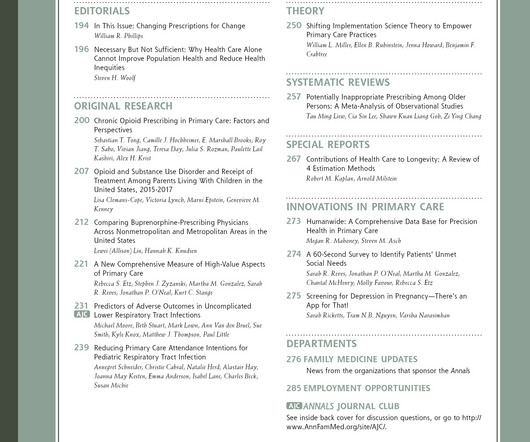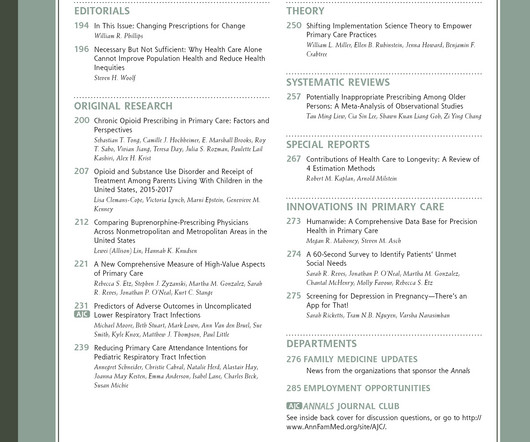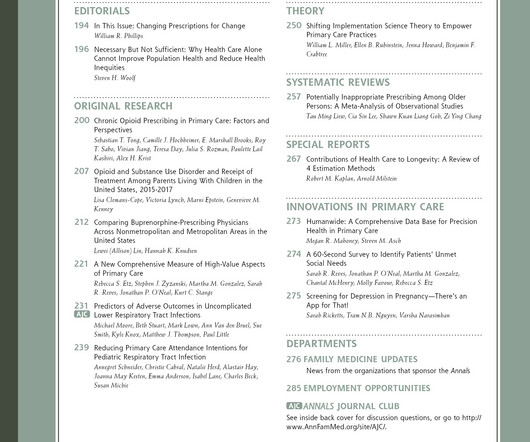Evaluation of Universal Food Insecurity Screening in the Primary Care Setting [Social determinants and vulnerable populations]
Annals of Family Medicine
NOVEMBER 20, 2024
The American Academy of Pediatrics recommends universal screening; however studies have found inconsistencies in screening of FI, documentation of FI, and referral to appropriate resources. Outcome Measures Percent eligible families that completed a food insecurity screening.


















Let's personalize your content